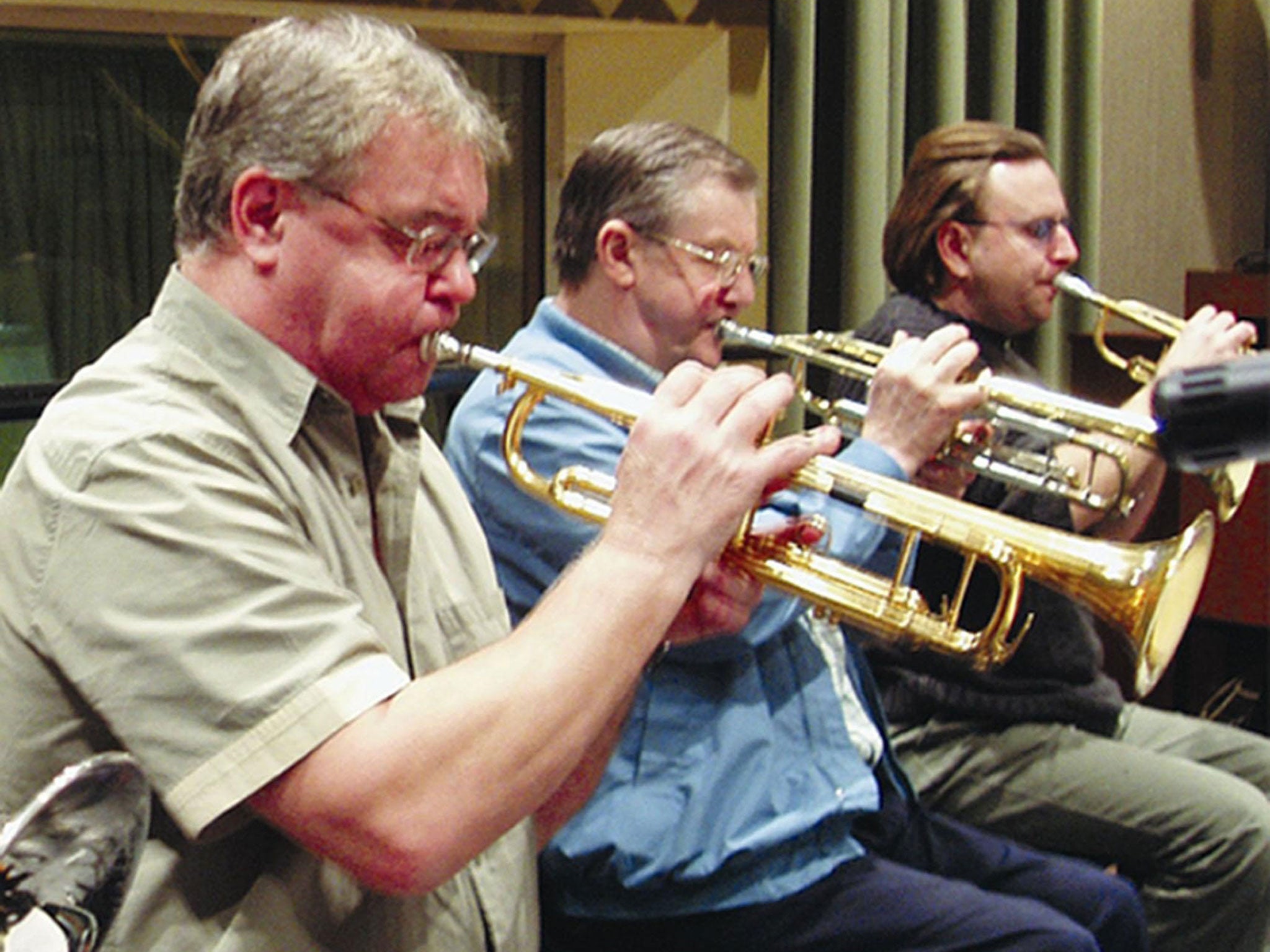Derek Watkins: Trumpeter who played on every Bond soundtrack

It is rare for orchestral musicians to gain an independent reputation with the public, as opposed to the admiration they earn from their colleagues. In more popular styles, the same rules apply even more forcefully to backing musicians. The trumpeter Derek Watkins gained some recognition latterly, thanks to his enviable record of having performed on the soundtrack of every single James Bond film, playing for the first of these, Dr No (1962), at the age of 17.
He was seen playing and also speaking, along with the composer Thomas Newman, in a promotional video for the most recent entry, Skyfall. Newman noted that "When [the film's director] Sam Mendes went out on to the podium after we'd finished recording and acknowledged Derek, you should've heard the orchestra. He had to take two bows because people kept applauding him." By this stage, however, Watkins had been diagnosed with cancer and was fund-raising for the charity Sarcoma UK.
Watkins got off to an early start, being taught from the age of six by his father, who also conducted him in the Spring Gardens brass band in Reading, of which his grandfather had been a founding member. He played in his father's dance band at the local Majestic Ballroom before turning professional in his late teens. Working in leading London bands, he soon established himself as a freelance player capable of meeting the demands of Ted Heath, John Dankworth and Maynard Ferguson (during the Canadian trumpeter's period of British residence).
His ability in the role of "lead trumpet" required not only interpreting written music in a way that satisfied its composers or arrangers, but executing it with the authority that enabled his brass colleagues to show both unity of purpose and tonal blend. In this capacity he was hired for the 1970s European tours of a notoriously demanding Benny Goodman. When he toured the US as one of the key backing musicians for the singer Tom Jones, he was lauded by the local musicians whom he worked alongside. One of his American equivalents, Chuck Findley, has called Watkins "the greatest trumpet player I ever met in my life, and I have played with them all".
He was soon a fixture in the so-called "session" scene that saw top professionals being booked by the hour to play previously unseen music at a level of accuracy that had to be heard to be believed. As such, he contributed trumpet parts to the Beatles' "Strawberry Fields Forever" and "Penny Lane", and appeared, usually uncredited, on recordings by artists as different as Frank Sinatra, Barbra Streisand, Robbie Williams, Placido Domingo, U2, Dizzy Gillespie and many others. Gillespie christened Watkins "Mister Lead".
He also worked for many European-based bands, such as those of Kenny Clarke-Francy Boland, Peter Herbolzheimer, James Last, and the famous Dutch radio ensemble, the Metropole Orchestra. Among his distinctive film soundtrack appearances the opening of Chicago (2002) and the trumpet work behind Shirley Bassey's title song for Goldfinger (1964) stand out. He was the natural choice for lead trumpet when John Altman was asked to augment the St Petersburg tank chase sequence for Goldeneye (1995) and Altman recalled Watkins' role on the rumba section of Shall We Dance (2004): "The director and producers had asked us to make the chart sound more 'over the top'. I asked Derek if he minded playing his lead part an octave higher in some spots. 'Sure, no problem!' This was the first take, and he doesn't miss one super A."
Taking on such essentially background roles meant that Watkins was unlikely to become a "name" performer, although he did make two albums in his own right. Increased Demand (1988) can be fairly described as "easy listening" in the positive sense, while Over The Rainbow (1995) has a definite jazz orientation, as does Stardust (made at the same time), which paired him with the American trumpeter Warren Vaché.
Watkins was also heard in specialised contributions to recordings by the London Symphony Orchestra and the Royal Philharmonic, when playing their versions of popular music. Not surprisingly, he was also in demand as a teacher when time permitted, becoming Visiting Professor at the Royal Academy of Music and conducting workshops when on tour in Europe or the US. In the mid-1980s he entered into a successful business partnership with the acoustician Dr Richard Smith to manufacture handmade trumpets, cornets and flugelhorns under the imprint of Smith-Watkins.
Described by all who worked with him as an unegotistical personality with an unfailing sense of humour, and the epitome of reliability, he made an impact not only on colleagues but on all who heard him. John Barry, who wrote music for the first dozen Bond films, said that Watkins "never failed to deliver the goods".
Derek Roy Watkins, trumpeter: born Reading 2 March 1945; married Wendy (two daughters, one son); died Claygate, Surrey 22 March 2013.
Subscribe to Independent Premium to bookmark this article
Want to bookmark your favourite articles and stories to read or reference later? Start your Independent Premium subscription today.

Join our commenting forum
Join thought-provoking conversations, follow other Independent readers and see their replies